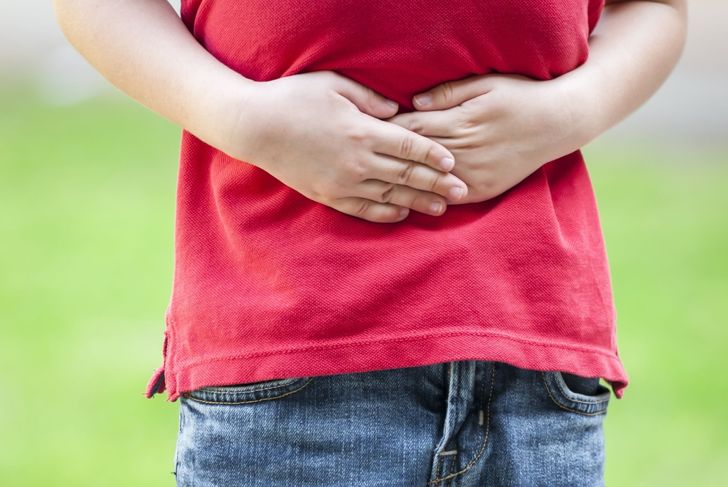Dengue fever is relatively rare in most parts of the world. It is most prevalent in the tropical parts of the Earth. Mosquitoes are the primary transmitters of the disease, causing a wide range of symptoms to appear. Some of the more serious symptoms include severe pain in the muscles and the joints as well as a fever. If you plan on traveling to an area that is rampant with mosquitoes, take the necessary precautions to protect against infection. Find out the top 10 signs of dengue fever.
Blood in Stools
Blood in the stools usually occurs within three to five days after developing a fever. Also known as melena, bloody stools are a serious symptom that warrants medical intervention. This is a result of bleeding in the intestines. You can check to see if you have bloody stools by examining your stool after going to the bathroom. If it appears black or coal-colored, you may have blood in your stool.
Bloody Gums and Nose
Another symptom that dengue fever causes are bleeding from the nose and gums. While this condition isn’t often serious, it can be recurring. If you can’t control the flow of blood, seek medical assistance. A bloody nose is one of the most common symptoms experienced by dengue fever patients. It may appear out of nowhere, so be sure to carry paper towels around. If blood loss is severe, a blood transfusion may be necessary.
Nausea and Vomiting
Despite being extremely unpleasant and off-putting, nausea is a necessary mechanism that ensures that we don’t consume dangerous substances. When we become nauseated, we may vomit, forcefully eliminating contents of the stomach. Dengue fever patients usually develop this symptom because the infection can spread all the way into the intestinal system. If the condition is severe, vomiting can last for more than a few days and may be life-threatening. Remember to drink plenty of water if you develop dengue fever. To treat vomiting, try sucking on ice chips to help calm down the stomach. Consult your doctor for specific advice.
Organ Complications
Dengue fever can be a severe condition if necessary treatment is not received. In such cases, the organs of the body – including the liver and the lungs – may become severely affected. While only a small minority of patients will develop such symptoms, they are a real possibility and should be carefully avoided. If the blood vessels of the body become damaged, they may leak blood which can result in a lower platelet count. Moreover, the skin may show signs of bruising, and fatigue may become extreme. Should you show any of these symptoms, seek medical attention as soon as possible.
Loss of Appetite
When you become infected with the common flu, you often notice your appetite decreasing. The same applies to patients who suffer from dengue fever. Their appetite often diminishes because their bodies use all their energy for fighting the disease. Moreover, fluid loss can become severe, especially if vomiting is frequent. Make sure to drink plenty of water if you become infected, as dehydration can significantly increase the severeness of other symptoms.
Muscle Pain
Many patients develop pain across the body after becoming infected. The pain can be felt throughout different parts of the body, including the muscle, joints, and bones. Pain can range from severe to mild and may be constant or intermittent. Pain occurs because the virus affects the basic structure of the body’s muscles, causing pain to occur. If you have a strong immune system, you are less likely to feel pain. Even after a cure, pain can persist for a while. Talk to your doctor about options for pain relief. Also, stay hydrated to reduce pain in a natural way.
Fever
When you become infected with a viral condition, your body’s first line of defense is a fever. This natural mechanism increases your body’s temperature in an attempt to kill the bacteria causing your condition. In most cases, a fever is nothing to worry about. If you develop an acute fever or if your fever lasts for more than four days, you should seek medical assistance as soon as possible to keep your body temperature under a healthy limit.
Headache
Getting a headache is just one of the many symptoms that dengue fever patients have to deal with. Headaches can be very frustrating, and they don’t go away easily. To make matters worse, they can make it difficult to concentrate. If you develop a painful headache that just won’t go away, try using over-the-counter painkillers at your doctor’s recommendation. Besides a headache, you can also expect to feel pain behind the eyes. In some cases, pain may also be present in the lower back. For more immediate relief, try laying down after drinking a few glasses of water.
Skin Rash
After three to four days of initial infection, a small portion of dengue fever patients will develop a rash on the skin. Normally, rashes tend to appear on the face and are characterized by a red color. You can also develop a rash in other parts of the body, including the trunk. Some people even report developing a rash in the chest or the arms. The rashes may be itchy, but this isn’t always the case. Usually, skin rashes tend to appear and disappear over time. They may even disappear altogether. If this isn’t the case, talk to your dermatologist to see what you can do.
Abdominal Pain
Last on the list is abdominal pain. While dengue fever can cause pain to be felt throughout the body, the abdomen is most likely to experience discomfort. The pain is often described as intense, but it can also be moderate or light. The abdomen is divided into different quadrants; the upper one is usually where pain first develops. It can then spread to other parts of the stomach. Other symptoms usually accompany abdominal pain, such as difficulty breathing or fever. To help deal with the pain, some people recommend not eating anything until the pain gets better. Talk to your doctor if you experience this symptom.

 Home
Home Health
Health Diet & Nutrition
Diet & Nutrition Living Well
Living Well More
More




















